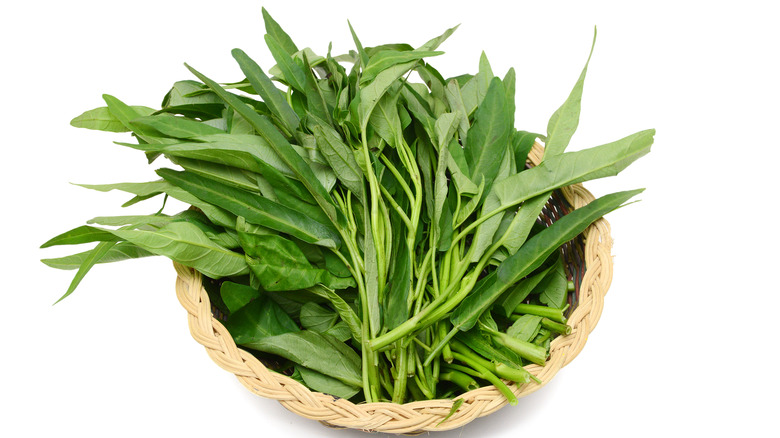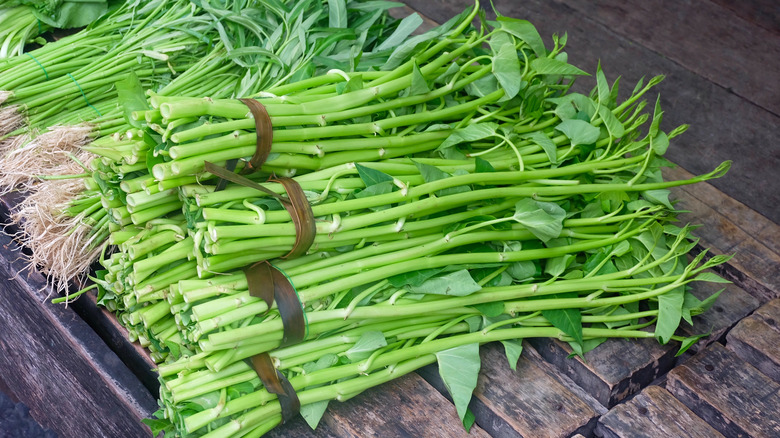Why Water Spinach Must Be Cultivated With Special Care In The US
We all know how important it is to eat your greens. Sometimes, you want to switch up the veg from the same old boring broccoli and stodgy spinach. Water spinach just might break you out of your veggie rut.
According to Instacart, water spinach is not spinach at all; rather, it's part of the Convolvulaceae (morning glory) family. It's native to Southeast Asia, but it has since spread to other tropical climates where it thrives in the humid heat. Water spinach is a nutrient powerhouse, chock full of vitamins C and A as well as magnesium, calcium, and iron (via AEssenseGrows). A staple in Asian cooking, it's often used for stir fries and soups (via The Spruce Eats). Without knowing the quality of the water the plant is grown in, it's best to avoid using it raw.
But don't dig out your recipes just yet — water spinach is tough to find in the U.S. While it was introduced here in the 1970s, its aggressive growth got it banned in many states, explains AZ Central. The semi-aquatic plant needs moist soil to grow, and in the correct conditions, it grows like a weed, up to four inches a day (and eventually measuring up to 70 feet in length), according to The Takeout.
Why water spinach is carefully cultivated
The Florida Fish and Wildlife Conservation Commission cites the negative impact water spinach can have on the environment, like its tangled vines blocking canals needed to control floods; its crowding out native plant and fish species; and its creating stagnant water conditions by forming thick canopies over small ponds and basins.
Since it is so invasive, cultivation must be carefully controlled, which isn't simple, according to Gardening Know How. Pulling it, either mechanically or by hand, only propagates new plants, sending it out of control. Because its seeds are filled with air pockets, they float and can easily spread to other areas via the water.
However, some states are working on plans to cultivate water spinach so that it can become a dietary staple. NPR reports Georgia is lifting its ban on water spinach. State authorities have agreed to import the vegetable from neighboring states like Florida, where they allow it grown under strict conditions like containing it in greenhouses and harvesting it before the plant can propagate. Meanwhile, Georgia plans to consider careful rules around their own local growing so the plant won't impact the environment.

